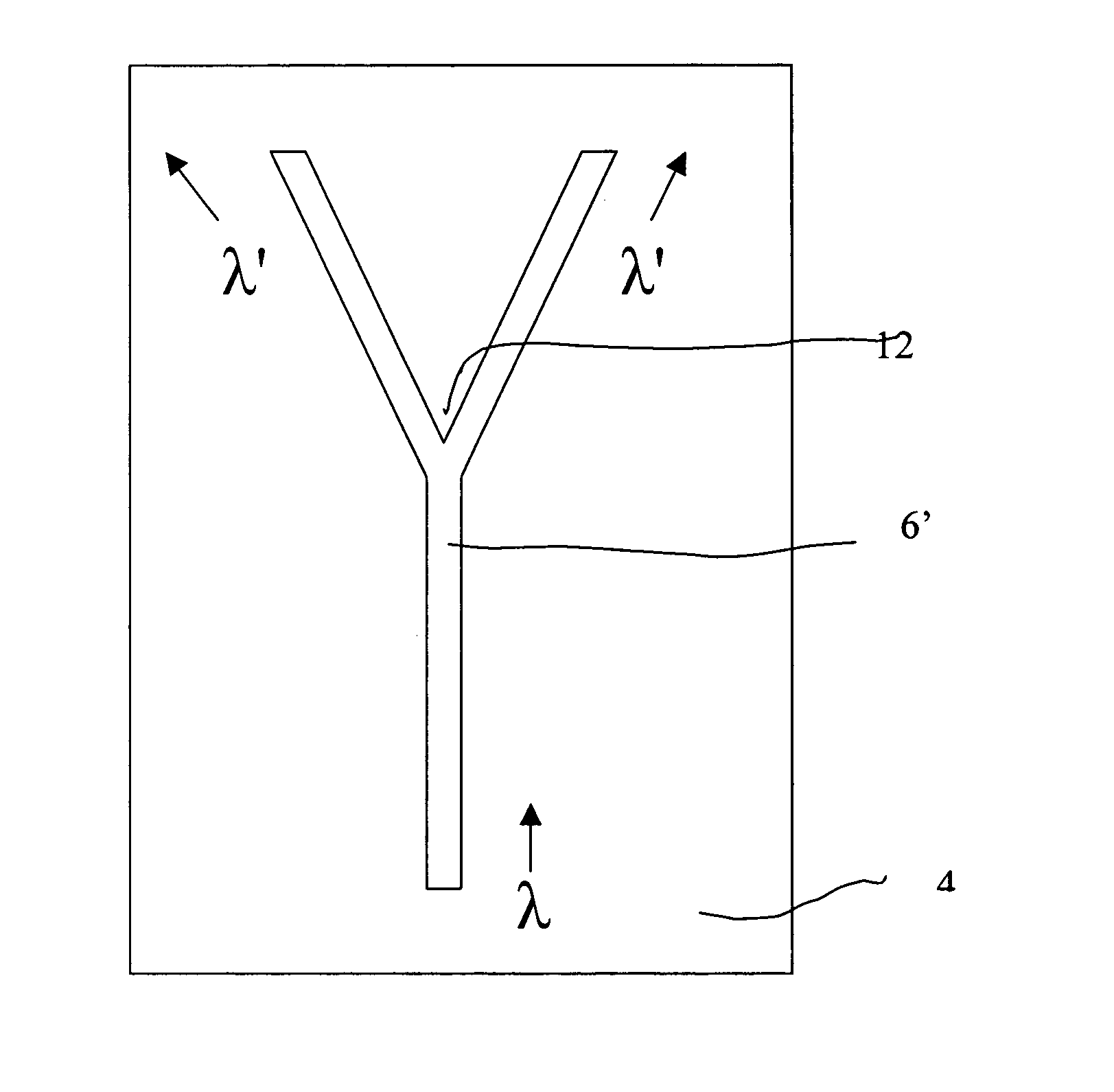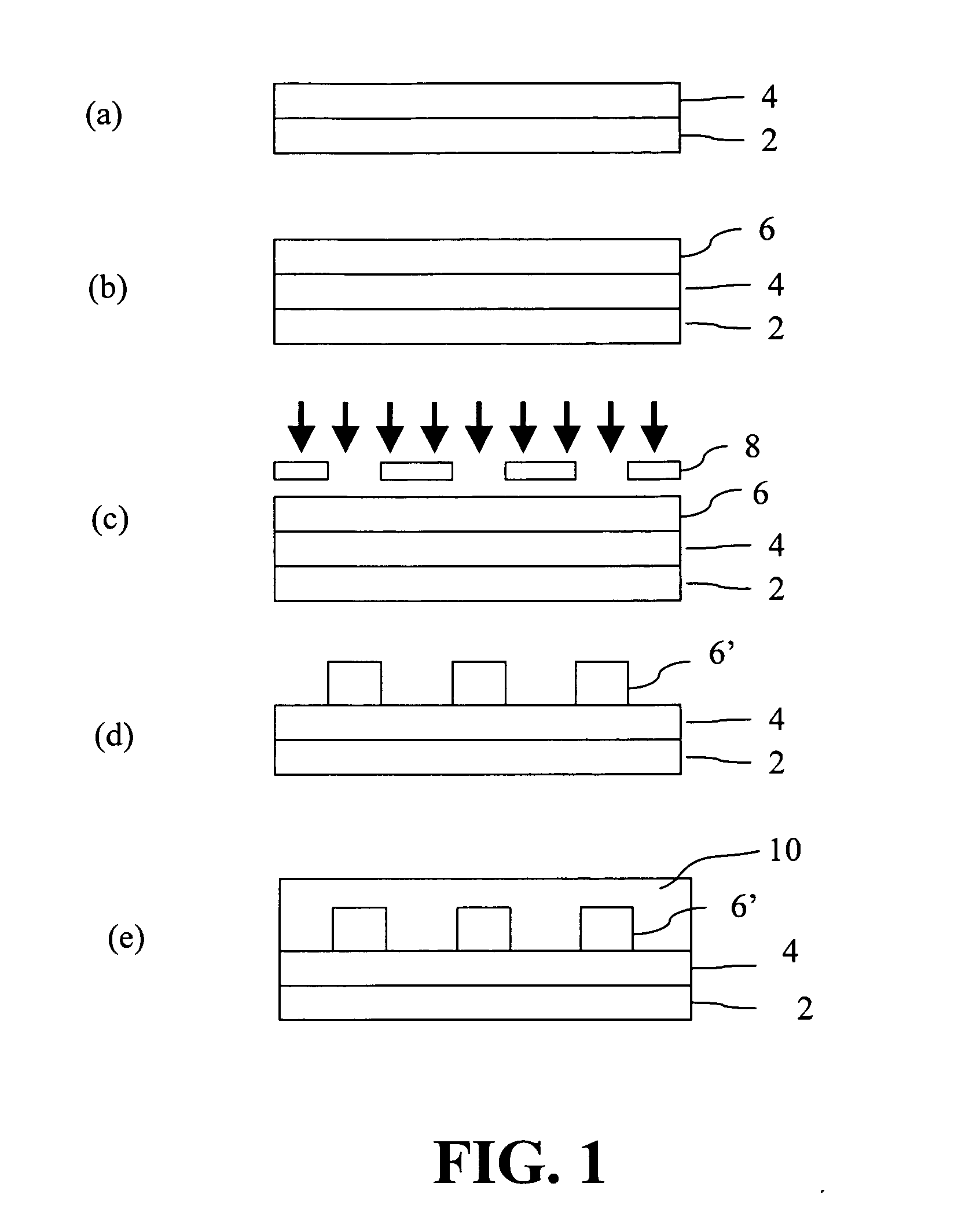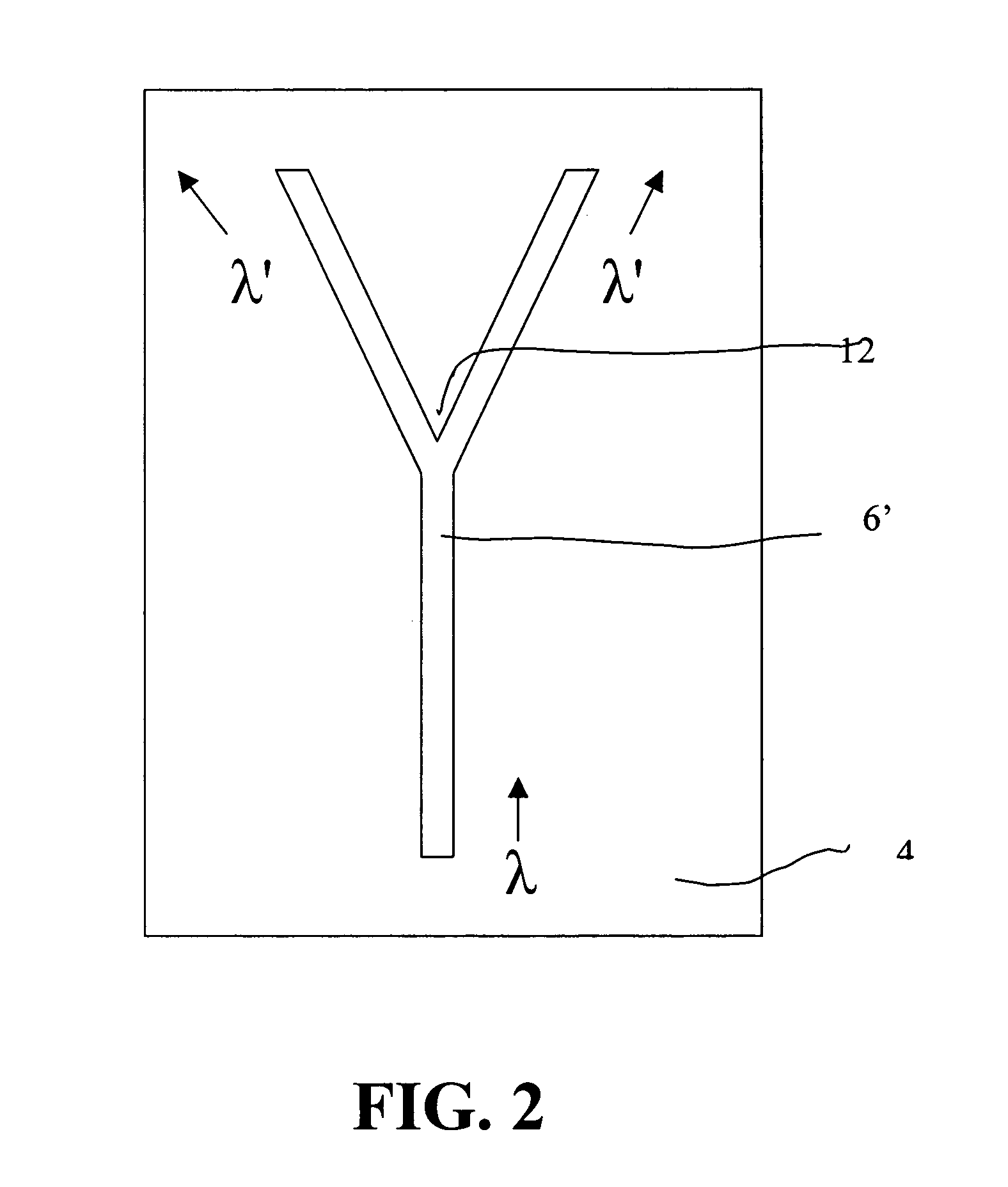Waveguide compositions and waveguides formed therefrom
a technology of compositions and waveguides, applied in the field of waveguides, can solve the problems of high loss and expense, general cracking property, moisture absorption, etc., and achieve the effect of improving the flexibility of the composition and altering the solubility of the composition
- Summary
- Abstract
- Description
- Claims
- Application Information
AI Technical Summary
Benefits of technology
Problems solved by technology
Method used
Image
Examples
example 1
[0065] 40.74 wt % propylene glycol monomethyl ether acetate, 53.76 wt % phenyl-methyl-dimethylsilsesquioxane (49:49:2 wt % based on polymer), 5.38 wt % polytetrahydrofurane, 0.11 wt % diphenylnaphthylsulfonium perfluorobutanesulfonate, and 0.01 wt % Dow SILWET L-7604 silicone-base oil were combined in admixture. The composition was coated onto a pumice-scrubbed copper clad laminate using a number 80 drawdown bar. The coated laminate was dried in an oven at 90° C. for 30 minutes. Artwork defining the required waveguide was placed directly on the composition. The artwork included patterns for forming waveguides of various dimensions and shapes, such as linear, branched, and curved shaped waveguides between 2 and 14 cm in length and 15 to 50 μm in width. The coated laminate was exposed at 500 mJ and placed in an oven at 90° C. for 15 minutes. The exposed laminate was then dipped in a 0.7N sodium hydroxide developer solution held at 37.8° C. (100° F.) for 30 seconds. The laminate was th...
example 2
[0066] 50 wt % propylene glycol monomethyl ether acetate, 42 wt % phenyl-methyl silsesquioxane (60:40 wt % based on polymer), 5 wt % of dihydroxy-terminated polyethylene oxide, 2.99 wt % triphenylsulfonium hexafluorophosphate, and 0.01 wt % Dow SILWET L-7604 silicone-base oil are combined in admixture. The composition is roller-coated onto 24 inch×36 inch (61 cm×91.4 cm) epoxy laminate, such as is commonly used in printed wiring board manufacture, to a thickness of 60 μm. The composition is then dried in air in a convection oven for 45 minutes at 90° C. Artwork as described in Example 1, but with line widths of 40 to 200 μm, is placed directly on the composition. 1000 mJ / cm2 of actinic radiation is applied to the construction, followed by a post-exposure-bake in air at 90° C. for 30 minutes. The exposed structure is then placed into a spray developer containing 0.7N sodium hydroxide developer solution held at 37.8° C. (100° F.) for a total of 120 seconds. The laminate is rinsed in d...
example 3
[0067] 45 wt % propylene glycol monomethyl ether acetate, 25 wt % of trifluoromethyl-phenyl-silsesquioxane (10:90 wt % based on polymer), 15 wt % polytetrahydrofurane, 4.95 wt % benzoin tosylate, and 0.05 wt % Dow SILWET L-7604 silicone-base oil are combined in admixture. The composition is spin-coated at 2500 rpm onto a six-inch silicon dioxide-coated silicon wafer and soft-baked in air on a hot plate for two minutes at 90° C., to a thickness of 8 μm. Artwork as described in Example 1 is placed directly on the composition. 2000 mJ / cm2 of actinic radiation is applied to the construction followed by a post-exposure-bake in air at 90° C. for two minutes. The exposed wafer is then dipped in a propylene glycol monomethyl ether acetate developer solution held at 37.8° C. (100° F.) for 30 seconds. The wafer is then rinsed in de-ionized water and dried. The wafer is heated to 200° C. in air for 10 minutes on a hot plate. Flexible optical waveguides are expected to be formed.
PUM
| Property | Measurement | Unit |
|---|---|---|
| temperature | aaaaa | aaaaa |
| thickness | aaaaa | aaaaa |
| thickness | aaaaa | aaaaa |
Abstract
Description
Claims
Application Information
 Login to View More
Login to View More - R&D
- Intellectual Property
- Life Sciences
- Materials
- Tech Scout
- Unparalleled Data Quality
- Higher Quality Content
- 60% Fewer Hallucinations
Browse by: Latest US Patents, China's latest patents, Technical Efficacy Thesaurus, Application Domain, Technology Topic, Popular Technical Reports.
© 2025 PatSnap. All rights reserved.Legal|Privacy policy|Modern Slavery Act Transparency Statement|Sitemap|About US| Contact US: help@patsnap.com



